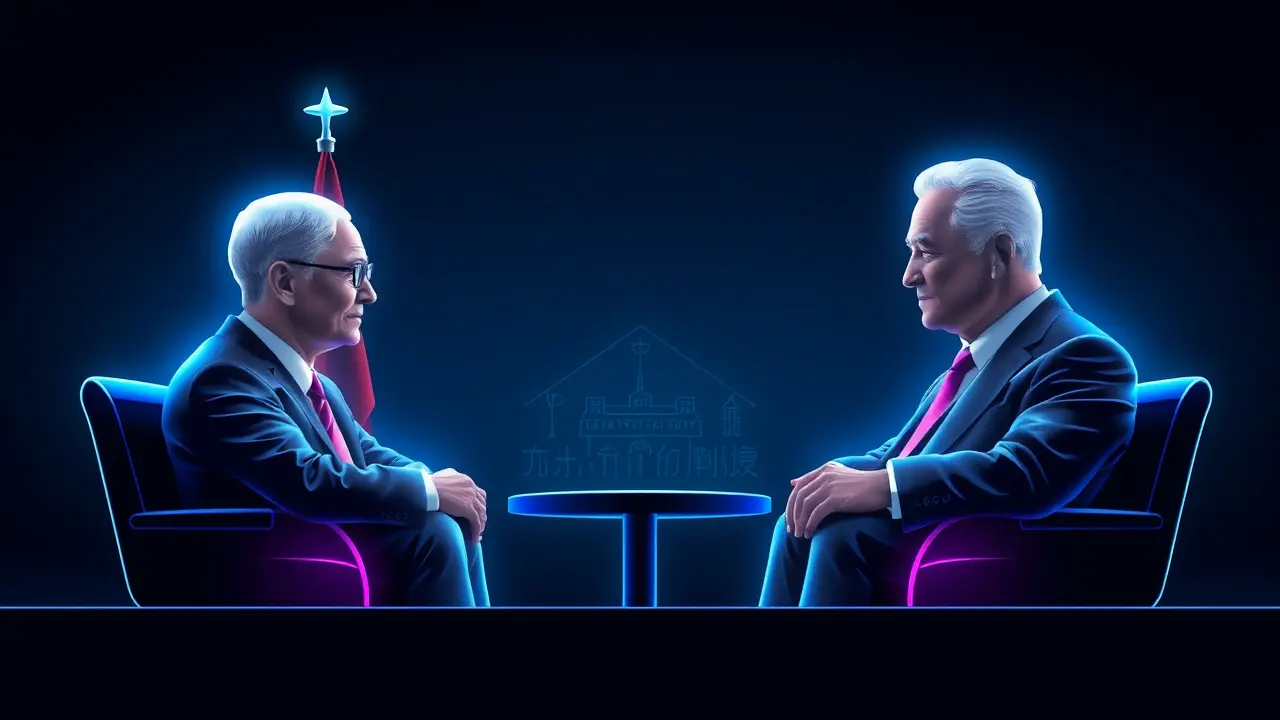
Politicssanctions & tradeTrade Deals
Canada's Carney Visits Xi Amid US Trade Dispute
RO
Robert Hayes
2 days ago7 min read
The carefully orchestrated meeting between Canadian Finance Minister Chrystia Freeland and Chinese President Xi Jinping in Beijing this week represents far more than a routine diplomatic exchange; it is a stark geopolitical realignment born of necessity, a calculated pivot by a traditional American ally toward its principal strategic competitor as Ottawa finds itself increasingly isolated within its own continental partnership. This extraordinary diplomatic maneuver unfolds against the bleak backdrop of a completely suspended trade dialogue with the United States, a negotiation framework that President Donald Trump abruptly terminated last month, labeling Canadian environmental and digital service trade proposals as 'non-starters' and 'hostile to American industrial interests.' For Canada, a nation whose economy is inextricably linked to its southern neighbor—with over 70% of its exports destined for the US market—this rupture is not merely an inconvenience but a profound systemic crisis, forcing a fundamental reconsideration of its foreign economic policy. The turn to China, therefore, is a high-stakes gambit reminiscent of historical moments when middle powers, caught between clashing titans, have been compelled to seek alternative patrons, much like certain European nations during the Cold War sought to balance relationships with both NATO and the Warsaw Pact to preserve their sovereignty and economic vitality.The agenda in Beijing, according to officials briefed on the matter, is expected to be expansive, covering not only the potential for a bilateral trade accord that could reduce Canadian reliance on the US but also cooperative ventures in critical mineral supply chains, green technology, and Arctic security—all areas where Chinese investment and market access could offer a vital counterweight to American pressure. However, this strategic outreach is fraught with immense peril.Ottawa walks a diplomatic tightrope, acutely aware that any perceived eagerness to embrace Beijing will be viewed with deep suspicion in Washington, potentially triggering retaliatory measures that could further exacerbate the very trade isolation Canada seeks to escape. Furthermore, domestic political considerations loom large; public opinion in Canada remains deeply ambivalent about closer ties with China, given ongoing concerns over human rights, intellectual property theft, and Beijing's increasingly assertive global posture.The success of Minister Freeland's mission will hinge on her ability to secure tangible economic concessions from President Xi—perhaps accelerated access for Canadian agricultural exports like canola and pork, which have faced arbitrary Chinese barriers in the past—without making strategic compromises that would alienate other G7 partners or cede undue influence in Canada's technologically sensitive sectors. The long-term consequences of this diplomatic shift are monumental.Should a substantive Canada-China framework emerge, it could signal the beginning of a broader fragmentation of the Western economic bloc, encouraging other US allies facing similar pressures to explore their own hedging strategies, thereby accelerating the move toward a multipolar world order where economic alliances are far more fluid and contested. Conversely, failure of this initiative would leave Canada in a profoundly vulnerable position, isolated from its primary market with no readily available alternatives, a scenario that could precipitate significant domestic economic contraction and political instability. The meeting in Beijing is thus not just a bilateral discussion; it is a critical test case for the resilience of traditional alliances in an era of renewed great power competition, a moment where a nation's economic desperation may be rewriting the foundational rules of international diplomacy.
#editorial picks news
#Canada
#China
#trade dispute
#Mark Carney
#Xi Jinping
#diplomacy
#US relations
#turning point
Stay Informed. Act Smarter.
Get weekly highlights, major headlines, and expert insights — then put your knowledge to work in our live prediction markets.
Comments
It’s quiet here...Start the conversation by leaving the first comment.
© 2025 Outpoll Service LTD. All rights reserved.